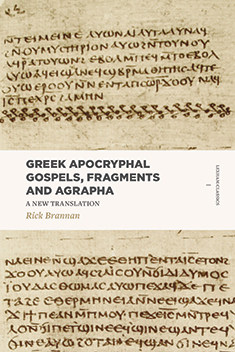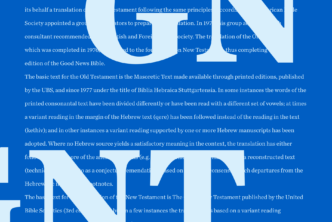Since the Greek Apocryphal Gospels, Fragments and Agrapha project made it to the “Under Development” stage of the Pre-Pub process, I’ve been spending part of my time working on it.
Specifically, I’ve been working on getting transcriptions of all of the fragmentary stuff and the agrapha together. It’s been fun, and I’ve been able to acquaint myself with these valuable fragments at a deeper level.
[Short aside: As I’ve worked on the transcriptions, I also translated them because I found it helpful for reference. So the resource will also include translations of the fragments and agrapha, which is new — not even mentioned on the Pre-Pub page yet!]
But, really, can this stuff be helpful and useful as you study the Bible? I think it can be, and that’s one reason why I wanted so much to start this project.
Let’s take a small fragment, P.Vindob. 2325 (aka “The Fayûm Fragment”) as an example.
This little guy, probably part of a larger scroll, was located in Vienna in 1885 among some papyri that Archduke Rainier had ferreted away. It probably dates to the early/middle third century (so, 200–250).
As you read it, it will sound very familiar. But the wording itself is different from other synoptic accounts of the same event. Here’s my provisional translation:
… and he brought out, as he said, that “In this night you will all fall away, as it is written: ‘I will strike the shepherd and the sheep will be scattered.'” Peter said, “Even if everyone else does, I will not.” Jesus said, “Before the rooster crows twice, today you will deny me three times.”
Sound familiar? Yup. Sounds like the same thing which is mentioned in Mt. 26:30–35; Mk. 14:26–30; see also Lk. 22:34 and Jn. 13:38. But, at the same time, it is a bit different. Jesus isn’t explicitly referred to at the beginning, at least in the portion of the text we have. It makes you wonder what happened before this event. The quote of Zech 13:7 is introduced slightly differently ([κατα] το γραφεν vs. γεγραπται γαρ), but the substance of the quote is pretty much the same. It is missing Mk 14:28/Mt 26:32, the part about the disciples meeting in Galilee after Jesus is raised. The dialogue between Peter and Jesus is a bit shorter and simpler. And the text agrees with the Markan reading, that the rooster will crow twice (Mt./Lk. just say “crow”), but says it will be “today” without Mark’s further “this night” clarification.
There are enough differences between the Greek of P.Vindob. 2325 and Mark 14:26–30 that we can pretty safely assume P.Vindob. 2325 is not directly related to the Gospel of Mark. A minority view is that it could be from the Gospel of Peter, but that relies on shaky ground (reading “Peter said” as “I, Peter, said” through an alternate reconstruction).
What P.Vindob. 2325 does tell is us that people were telling the story of Christ’s crucifixion (and resurrection) in all sorts of ways and that, at least in this instance, it sounds pretty much like what we’re familiar with. One common thought today is that P.Vindob. 2325 was a re-working and abridgment of the synoptic accounts.
There are all sorts of fragments like this, witnessing some portion found in the gospels—but not in completely the same way. While definitely not canonical, they are very interesting and enlightening.
There are also fragments that expand upon canonical material and fragments that give us completely new material. They help us understand more about the sorts of tales and influences that were floating about in the early, early church. We’ll talk about these sorts of fragments next week!





